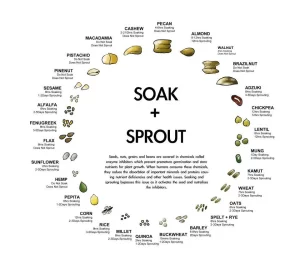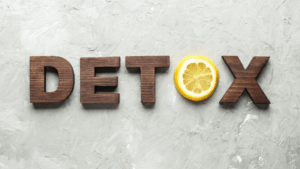Healthy Digestion and You
You’ve heard the saying, “you are what you eat” but realistically we should say, “you are what you digest!”. Eating the same foods daily or processed food with sugar, fat and sodium in excess is over burdening the body and disrupting the digestive process.
Even if you strive to eat well, our food system is working against you. Foods are laden with processed junk that is nutritionally void and jam-packed with other toxins your body doesn’t know what to do with!
Healthy digestion is essential to optimal health. The food you eat should fuel your body but if your digestion isn’t up to par then the nutrition you consume may not benefit you. You can eat a perfect diet and lead a healthy lifestyle, but if your body can’t assimilate your foods you’ll be destined to remain unwell despite your best efforts.
Now, you probably learned how the body digests food in 5th grade but it is vital to your health that we review the process…
The Five Steps of Digestion & Absorption
- Sight and smell—these sensations stimulate the flow of saliva to prepare for incoming food.
- Mouth—teeth chew the food into semi-liquid texture to expose more of the food surface to the enzyme activity in saliva. Saliva contains the digestive enzyme amylase, which begins the breakdown of carbohydrates only, therefore, the more you chew and mix the food with these enzymes the better you breakdown of carbohydrates. Starches will begin to taste sweet if they are chewed long enough to begin their breakdown into simple glucose/sugar molecules.
- Stomach—(holds approximately 1 gallon of food) Carbohydrates are not digested in the stomach. No food is absorbed into the body from this organ.
- Depending on the food it can take between 15-minutes or 5 hours.
- Liquids take minutes
- Fruits: 15-30 minutes if eaten alone
- Veggies: 30-50 minutes depending on preparation and type
- Grains/starches: 90-120 minutes
- Animal proteins: 4-6 hours
- Fats: slowest of all foods
- Stomach produces Hydrochloric acid (HCl) and enzymes (pepsin), which break down proteins. Overall levels of HCl can decrease if a diet is high in red meat; dairy and processed food is consumed. Protein, calcium and iron require a good acid/HCl soak to break down properly.
- HCl levels decrease with age
- Over 40 yrs. old, levels can be half of an 18 year old
- Over 60-65, a dramatic decrease so it is important to use digestive enzymes once you’ve tested to determine which type you need
- Depending on the food it can take between 15-minutes or 5 hours.
- Small intestine – the body’s major digestive organ
- 3 sections include duodenum (10 in), jejunum (8 ft.) and ileum (12 ft.)
- Depending on the meal it takes between 2-6 hour journey
- Tiny fingerlike projections (villi) line the inside of the small intestine increasing the absorption area. The villi can be damaged or flattened by constipation, highly processed food, alcohol, drugs, or lack of good bacteria. This can contribute to malabsorption (IBS, Chron’s, colitis) and other disease.
- The small intestine can only process small amounts of food at a time. The small intestine is where chemical digestion of food really begins. When the acidic chime enters the duodenum (1st section of small intestine) its acidity triggers the release of two extremely important digestive juices.
- Pancreatic juice (from pancreas) is very alkaline and contains amylase for carbohydrate digestion, lipase for fat and proteases for protein.
- Bile (from liver and stored in gallbladder is an emulsifier and acts as a detergent to break down large fat globules and expose them to lipase. Bile is necessary for the absorption of the fat- soluble vitamins (A,D,E,K).
- Large intestine (colon or bowel)
- Larger than small intestine, no villi and about 5 ft. in length
- Journey thru colon take 8-12 hours
- Produces no enzymes and contains 500 bacteria which involve:
- Production of vitamins K, B12
- Control the colon’s microflora (balance of good/bad bacteria)
- Metabolize remaining nutrients (releasing gases, especially if there is a microflora imbalance)
- Feces contain undigested food residues, mucous, millions of bacteria and enough water to allow smooth passage. The longer feces remain in the colon, the more water the colon absorbs from the stool and the harder it becomes. This may result in constipation. If passage is too quick, not enough water, results in diarrhea.
Most children typically properly digest their food properly until their bodies are corrupted with excess sugar, fats, additives, preservatives and genetically-modified foods.
However, by the time we reach the age of 30-40, our bodies are struggling to break down food. Next, we start to experience gas, bloating, belching, heartburn etc. that tells us something is not working.
Often times, instead of looking at our diet for clues, we take antacids or the magic purple pills that further breakdown the immune and digestive system and only mask the symptoms instead of resolving the issues. These products can further impede and disrupt the natural process of digestion.
Don’t mask your symptoms or reach for that quick fix if you want to GET BETTER!
Antacids, gas pills and others aren’t going to help you to remedy the breakdown in the digestive process! You might temporarily feel relief but the real issues at hand will not be addressed and they’ll usually become worse as you body continues to grow deficient in the vital nutrients it can no longer digest and absorb. Nutritionally, you are starving!
My favorite saying is we need to “get the colon rollin”. Examine your bowel movements (and yes, I mean that literally) to determine your frequency and consistency. If you eat three meals, you should have three bowel movements. The feces should be brown, well-formed and about the size of a banana.
The digestive process is so complex that I always recommend you get some solid informatin about your digestive functionings (or lack thereof) before you attempt to make any diet, supplement or lifestyle changes.
Hair Mineral & 24 Urinanalyis testing can give you a road map to improving the digestive process and purging toxins that is uniquely tailored to you. Your test results will provide amazingly powerful information and insights to your own body functioning and you’ll even get specific recommendations for improving digestion and absorption.
Past clients have found that enzymes, personalized supplements and even detox products are recommended to get back on the road to wellness. While you can certainly buy these products independently as you self-diagnose, you’ll typically stay sick longer as you’ll not know the specific requirements of your body without nutritional testing. Remember, nutritional testing is prevention based, not diagnostic. If you want to take a peek ahead into your health and prevent disease, I would love to help you!




